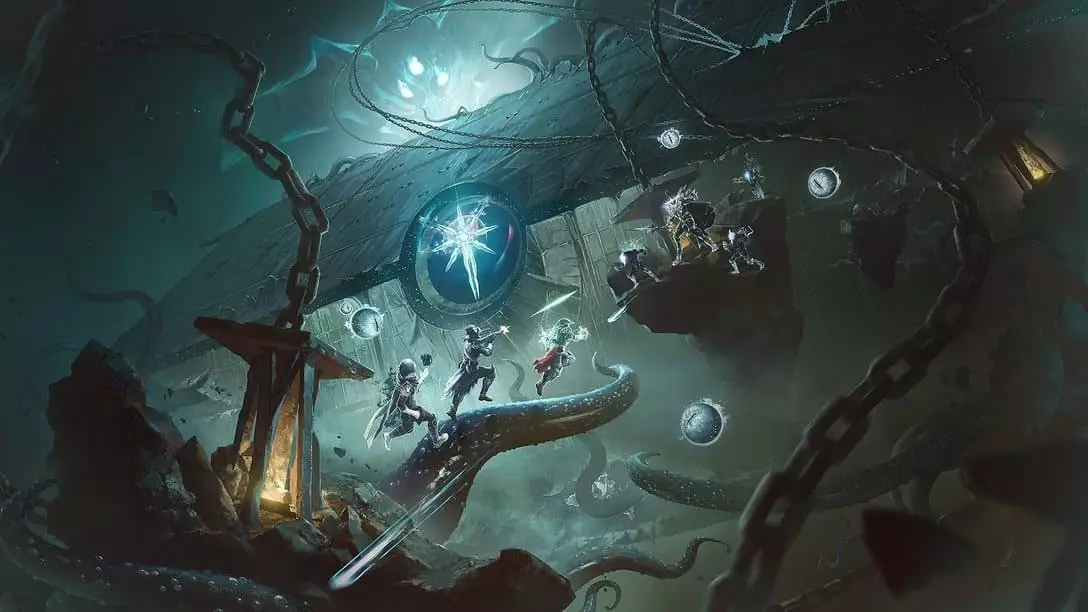The gaming industry, much like other creative sectors, is no stranger to labor disputes that affect the production process. The upcoming release of Destiny 2’s Heresy DLC, scheduled for February 4, 2025, is a telling example of how labor strikes can ripple through a major video game launch. With certain voice lines going silent due to the ongoing SAG-AFTRA strike—an event shaping both the present and future of game development—the industry’s landscape is being transformed in ways that could have long-lasting implications.
As players dive back into the vibrant worlds of Destiny 2, they will find an absence of voice acting in specific segments, a notable shift from previous expansions characterized by rich character dialogues. Bungie’s acknowledgment of the striking actors showcases a commitment to transparency. With subtitles enabled by default, players will not miss any vital storytelling elements, and customization options for subtitle size, color, and background will provide added accessibility. However, this attempt to maintain narrative integrity is overshadowed by the implications of a work environment fraught with tension.
The warning systems in place for activities lacking voice acting point to an ongoing struggle within the company’s production framework. By highlighting areas impacted by the strike, Bungie attempts to mitigate user confusion and disappointment, yet the situation nevertheless strains the overall gaming experience. It is a stark reminder that creative output can be heavily influenced by socio-economic factors, further emphasizing the fragility of a developer’s relationship with its creative workforce.
At the heart of this strike is the tension surrounding the use of artificial intelligence in voice acting. The concerns raised by SAG-AFTRA center on the desire for equitable protections for actors, reminiscent of those in the film and television industries. The union’s insistence on fair compensation and knowing consent when it comes to AI exploitation indicates a deep commitment to preserving the rights and livelihoods of performers.
Fran Drescher’s declaration that video game actors deserve fundamental protections reflects a broader narrative within the entertainment industry—a narrative that stipulates that work conditions must evolve with technology rather than sacrificing the human element to exploitative practices. The developing role of AI in gaming presents a unique challenge; it has the potential to disrupt traditional creative roles while providing efficiencies that might benefit production.
Interestingly, the strike hasn’t left Bungie isolated; many companies are undergoing similar challenges. Other developers, such as Riot Games and Kojima Productions, have already reported disruptions in their projects, including character skins and game launches. The chain reaction caused by the strike exacerbates a sense of uncertainty that may prolong the industry’s labor conflicts while potentially setting a precedent for how talent will negotiate the use of AI in their work.
As the industry grapples with the ramifications of the SAG-AFTRA strike, the palpable tension raises critical questions about the trajectory of game production. How will studios adapt if they remain resistant to adopting the protections sought by union actors? With a landscape marked by uncertainty, companies face the looming threat of sustained disruptions in their talent pool.
The ongoing negotiations reflect a delicate balance between the demands of talent and the pressures of an ever-evolving technological landscape. While union representatives return to the negotiating table, the stagnation since July 2024 indicates that finding common ground could be arduous. The lack of movement on significant issues not only stalls individual game developments but could also usher in a larger reconsideration of creative rights in a technology-focused era.
In a world increasingly intertwined with AI, industries must actively work to ensure that human talent remains at the forefront. The absence of major developments in SAG-AFTRA’s negotiations threatens not just a temporary pause in game development, but a complete fundamental shift in industry norms. The impact of the Heresy DLC’s voice acting situation serves as a microcosm of the broader challenges that lie ahead for the gaming world. The outcome of these negotiations will not only determine the future working conditions for actors but also shape the interactive stories that games can tell.

